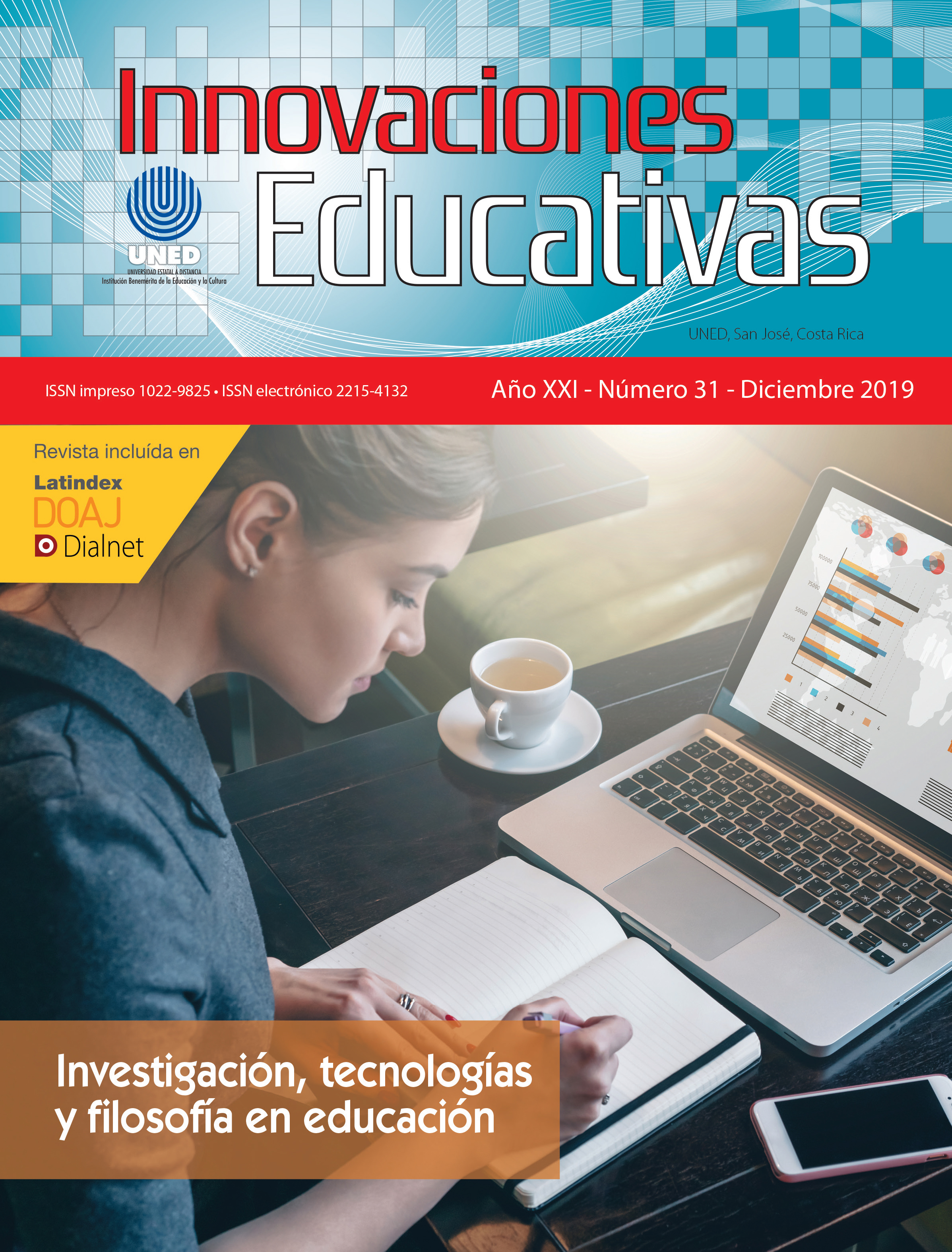Teaching Strategies Based on Learning Styles: Promoting Communicative Competence in Speaking Skills
DOI:
https://doi.org/10.22458/ie.v21i31.2692Keywords:
Teaching strategies, Learning styles, Kolb's Model of the Experiential Learning Theory of 1984, Communicative competence, Speaking skillsAbstract
This article summarizes the process carried out to promote communicative competence in speaking skills; it was developed through the implementation of teaching strategies based on the learning styles proposed by Kolb in his model of the Experiential Learning Theory of 1984. This case study was carried out during the last semester (July to December), in 2014; in fact, four beginner EFL students were the research participants. To collect data, three instruments were administered: a checklist, a scoring sheet and a questionnaire. The data gathered was analyzed and triangulated through three pre-established categories of analysis: participants’ learning styles, learners’ oral performance before conducting the research, and students’ communicative competence in speaking skills after the implementation of teaching strategies specifically based on the identified learning styles from Kolb’s model of the Experiential Learning Theory of 1984. Generally, the findings obtained show the effectiveness of the teaching strategies implemented in regards to the identified learning types; these strategies aimed to help students improve their communicative competence in speaking skills.
References
Eibel, S. (2005). English, the lingua franca, as a global language and the decline of German as an international language of science. Seminar Paper, 7. Retrieved from: http://books.google.co.cr/ books?id=xTDOr2UQ5pAC&printsec=frontcover&hl=es#v=onepage&q&f=false
Herrel, A., & Jordan, M. (2008). 50 Strategies for teaching English language learners. California: California State University.
Honey, P., & Mumford, A. (1992). Manual of learning styles. London: P Honey.
Kolb, A., & Kolb, D. (2005). Learning styles and learning spaces: A review of the multidisciplinary application of experiential learning theory in higher education. Department of Organizational Behavior, Weatherhead School of Management, Case Western Reserve University. Retrieved from https:// weatherhead.case.edu/departments/organizationalbehavior/workingPapers/WP-04-04.pdf
Kolb, D. (1984). Experiential learning: Experience as the source of learning and development. New Jersey: Prentice Hall.
Lefever, M. (1995). Learning styles: Reaching everyone God gave you to teach. Colorado: David C. Cook.
Lightbown, P., & Spada, N. (1999). How languages are learned. Oxford: Oxford University Press.
McLeod, S. (2010). Kolb-learning styles. Simply Psychology. Retrieved from http://www.simplypsychology.org/learning-kolb.html
Nunan, D. (2003). Practical English Language Teaching. New York: McGraw-Hill Press. Richards, J. (2005). Interchange Intro. New York: Cambridge University Press. Richards, J. (2008). Teaching listening and speaking from theory to practice. New York: Cambridge University Press. Seidlhofer, B. (2005). English as a lingua franca. ELT Journal 59, 339. doi:10.1093/elt/cci064 Trevisol, J. & Hining, J. (2010). Investigating delayed effects of learners’ awareness of their own learning styles. Interlinguagens, 5-6. Retrieved from http://www.revistainterlinguagens.com.br/publicacoes/28A856596ECC94F14AAAEB944DDD4CB9.PDF









